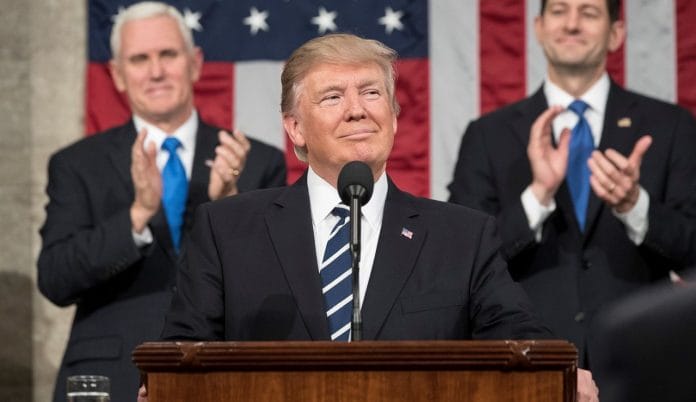President Donald Trump’s term has been a long and detailed illustration of what unfitness for office looks like — and of the weakness of our political system in responding to it. His latest abuses of power and derelictions of responsibility give Congress a last chance to prove it can stir itself to take the requisite action.
In December 2019, the House of Representatives impeached Trump for trying to use congressionally mandated aid to pressure the government of Ukraine to throw dirt on his political rival, Joe Biden. The main argument against impeachment and removal was that he hadn’t broken any criminal statute. Never mind that James Madison specifically mentioned impeachment as the remedy for a presidential abuse that wasn’t a criminal violation: a corrupt pardon. Never mind, either, that most House impeachments haven’t been for criminal law-breaking.
The question that should command congressional attention now is not whether Trump is guilty of criminal incitement in a way that would satisfy a court. Trump’s post-election campaign of conspiracy theorizing, misinformation and urging states and the Congress to overturn the election results easily met the Madisonian standard of “perfidy” by the executive, and would have met it even if nobody had attacked the Capitol on Jan. 6. His misconduct also meets the standard enunciated by the House Judiciary Committee during Watergate: It was “both serious and incompatible with the duties of the office.”
Some senators who voted to acquit Trump in 2020 agree that he has now committed an impeachable offense. What is left to resolve is the prudential question: What’s the best way forward for the country given Trump’s malfeasance?
The vice president and the cabinet have been unwilling to deploy their authority under the 25th Amendment to declare Trump unable to discharge his duties. There has been some discussion of treating Trump as disqualified from future office under Section 3 of the 14th Amendment, which applies to officials who have “engaged in insurrection” or given “aid and comfort” to enemies of the U.S. But that’s a stretch. Congress had not declared the Capitol rioters enemies and Trump’s worst conduct came before their aggression.
That leaves two options for Congress: impeachment, or taking no official action against the president. The main prudential arguments against impeachment are that it would further inflame an already heated political scene and that Trump is leaving office in days no matter what. But the divisiveness of impeachment is overstated. House votes to impeach presidents didn’t have dire consequences in either 1998 or 2019, and the fact that Trump is on his way out should lower such risks further. And even at this late date, impeachment and conviction would strengthen the country’s political norms against future presidential misconduct, not least by setting a valuable precedent.
The Constitution speaks of a Senate “trial” of a president before he can be convicted. His lawyers have to be allowed to present their case. But there is no need for this trial to take weeks or even days. Congress could reasonably conduct an inquiry into everything Trump has done to overturn the election, but it could also reasonably conclude that deliberation can rely on the factual record already available to everyone.
The Senate is not scheduled to resume work until right before Biden takes office on Jan. 20, and any senator can keep it from coming back faster. So a conviction that leads to Trump’s removal from office (and the loss of pension benefits and the like) is practically off the table. A post-presidential conviction, followed by a vote that disqualifies him from future office, is the best option left.
The disqualification would be an undemocratic step: It would mean that Trump would not be eligible for another term in office starting in 2025, even if every state wanted him. But it’s the only way for Trump to receive any punishment for his recent behavior.
The bipartisan condemnation of Trump at the moment could easily yield to bipartisan inaction. A lot of Republican politicians want to leave Trump in their rearview mirror. Many voters who aren’t die-hard Republicans will feel similarly. Biden doubtless wants to get on with his own legislative agenda.
But there’s nothing on that agenda more important than strengthening the country’s safeguards against a future presidency like Trump’s. Impeachment and conviction should be the first order of business for Congress. –Bloomberg
Also read: Network Effect, the force that could finish off both Trump and WhatsApp






